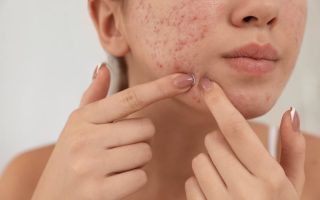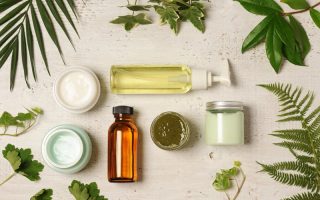Taking care of your skin can be confusing with all the myths floating around. Let’s clear up some common misconceptions and get to the facts for healthier skin.
Myth 1: Expensive Products Are Always Better
Many people think that the more they spend on skincare products, the better their skin will look. But that’s not always true. Dr. Sarah Lee, a board-certified dermatologist, says, “The biggest misconception about skincare is that expensive products are always better. Focus on quality ingredients over price tags and prioritize a consistent routine over a cluttered vanity.”
Instead of splurging on pricey items, look for products with good ingredients. For example, Vitamin C is a great ingredient that can help with wrinkles and dark spots. A study titled “The Effectiveness of Topical Vitamin C in Skin Care” found that Vitamin C can improve skin health and appearance.
Myth 2: Natural Products Are Always Safe
Just because something is labeled “natural” doesn’t mean it’s safe for your skin. Dr. David E. Bank, another board-certified dermatologist, warns, “Some natural ingredients can be harsh or even trigger allergies. Do your research and patch-test before using any new product.”
I once tried a natural face mask made from honey and lemon. It sounded great, but it made my skin red and itchy. Always test a small amount on your skin first to see how it reacts.
Myth 3: You Need to Detox Your Skin
The idea of detoxing your skin is popular, but it’s not necessary. Dr. Whitney Bowe explains, “Your liver and kidneys are your primary detoxification organs. Focus on a healthy diet and lifestyle to support their function, and leave the skin to do its job.”
Eating a balanced diet with lots of fruits and vegetables can help your skin look its best. A study called “The Role of Diet in Skin Health” found that nutrients like antioxidants and omega-3 fatty acids can improve skin conditions like acne and wrinkles.
Myth 4: Oily Skin Equals Acne
Many people think that if they have oily skin, they will automatically get acne. But that’s not always the case. Dr. Doris Day, a board-certified dermatologist, says, “Oily skin doesn’t equal acne. Sometimes, over-drying your skin with harsh cleansers can actually make acne worse. Find a gentle cleanser and moisturizer that respects your skin’s natural oil balance.”
When I was a teenager, I used harsh cleansers to try to get rid of my oily skin. It only made things worse. Now, I use a gentle cleanser and a light moisturizer, and my skin is much happier.
Myth 5: You Don’t Need Sunscreen on Cloudy Days
Some people skip sunscreen when it’s cloudy, but UV rays can still reach your skin. Always wear sunscreen, even on cloudy days, to protect your skin from damage.
Myth 6: Drinking Water Alone Will Hydrate Your Skin
While drinking water is important for overall health, it won’t magically hydrate your skin. You also need to use moisturizers to keep your skin hydrated. Look for products with ingredients like hyaluronic acid, which helps your skin retain moisture.
Myth 7: Popping Pimples Makes Them Go Away Faster
Popping pimples can actually make things worse. It can lead to scars and infections. Instead, use spot treatments with ingredients like salicylic acid to help pimples heal faster.
Myth 8: You Only Need Anti-Aging Products When You’re Older
It’s never too early to start taking care of your skin. Using products with antioxidants and sunscreen can help prevent signs of aging. Start a good skincare routine in your 20s to keep your skin looking youthful.
Myth 9: You Should Exfoliate Every Day
Exfoliating too often can irritate your skin. Stick to exfoliating 1-2 times a week to remove dead skin cells without causing damage.
Myth 10: You Don’t Need to Moisturize If You Have Oily Skin
Even if you have oily skin, you still need to moisturize. Look for lightweight, oil-free moisturizers that won’t clog your pores.
Conclusion
Taking care of your skin doesn’t have to be complicated. By debunking these common myths, you can focus on what really works. Remember to choose products with good ingredients, eat a balanced diet, and stick to a consistent skincare routine. Your skin will thank you!
References
- Dr. Sarah Lee, board-certified dermatologist and author of “The Skin You’re In”
- Dr. David E. Bank, board-certified dermatologist and author of “The Complete Idiot’s Guide to Healthy Skin”
- Dr. Whitney Bowe, board-certified dermatologist and author of “The Beauty of Dirty Skin”
- Dr. Doris Day, board-certified dermatologist and author of “Beyond Beautiful: The Ultimate Guide to a Lifetime of Healthy Skin”
- “The Effectiveness of Topical Vitamin C in Skin Care”
- “The Role of Diet in Skin Health”




